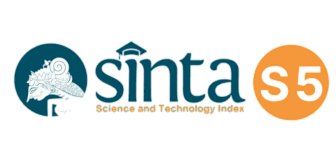PERAN ELITE SUKU TENGGER DALAM PEMILU 2019 DI DESA ARGOSARI KECAMATAN SENDURO KABUPATEN LUMAJANG
Downloads
This research focuses on the roles of the elite in the Tengger Tribe in the last 2019 elections, more precisely discussing matters related to authority and authority in the successful holding of the 2019 elections yesterday. This elite which is divided into several segments is a channel for the aspirations of the lower classes. The minimal knowledge of the Tengger Tribe regarding politics and government makes some actions and choices tend to follow the local elites. In this case, the elite in the eyes of Max Weber, dividing it into three types according to social relations. The three types are traditional authority types which in Tengger society are occupied by adat pandhita shamans, charismatic authority types which are occupied by Hindu religious leaders and Islamic religious leaders, and the last is formal legal authority type occupied by the Argosari village head. Concerning the 2019 General Elections, each has its own mass base in terms of the type of authority. Even though the village head, traditional shaman, Muslim and Hindu community leaders, do differ in their political choices, they still uphold democratic values along with their traditional values. Some philosophies related to democracy and elections according to the elite and the Tengger community are the same as the life guidelines handed down from their ancestors. Tengger Tribe living guidelines include, among others, Tenggering benevolence, Sesanti Titi Luhur, Disathru, and Hila-Hila which are instructions for democracy. The implementation of elections and democracy in peace will be realized when the Tengger Tribe people follow the guidelines of their ancestors. Thus, the motto adopted by the local community can be realized "Memayu Hayuning Bawono and Sepi Ing Pamrih Rame Ing Gawe”.
Budiarjo M (1984) Aneka Pemikiran tentang Kuasa dan Wibawa. Jakarta: Sinar Harapan.
Chalik A (2017) Dinamika Elite dalam Politik Lokal. Yogyakarta: Pustaka Pelajar.
Febrianto V (2019) Filosofi Masyarakat Tengger untuk Pemilu, Antara News, 23 Maret. Diakses 12 Oktober 2019, dari https://www.antaranews.com/berita/814433/filosofi-masyarakat-tengger-untuk-pemilu
Fuad M (2014) Kyai di Panggung Pemilu dari Kyai Khos sampai High Cost. Jakarta: Renebook.
Harrison L (2007) Metodologi Penelitian Politik Jakarta: Preneda Media Grup.
Hefner RW (1999) Geger Tengger: Perubahan Sosial dan Perkelaian Politik.Yogyakarta: LKiS.
Komisi Pemilihan Umum (2019) Rekapitulasi Hasil Pemilu Legislatif DPRD Kab/Kota 2019. Diakses Oktober 2019, dari https://pemilu2019.kpu.go.id/#/dprdkab/rekapitulasi/terkait-perolehan-suara-kecamatan-senduro-kabupaten-lumajang
Legg KR (1982) Tuan, Hamba, dan Politisi. Jakarta: Yayasan Obor Jakarta.
Muhyidin A (2016) Aktor Politik dan Kepentingan. Jurnal Politik, 2(1), 1-4).
Nurhasim M ( 2005) Konflik antar Elite Politik Lokal Dalam Pemilihan Kepala Daerah. Yogyakarta: Pustaka Pelajar Offset.
Santosa S (1992) Dinamika Kelompok. Jakarta: Bumi Aksara.
Sugiyono (2016) Metode Penelitian Kuantitatif, Kualitatif dan R&D. Bandung: PT. Alfabhet.
Surbakti R (2010) Memahami Ilmu Politik. Jakarta: Kompas Gramedia.
Semiawan C (2010) Metode Penelitian Kualitatif (Jenis, Karakteristik, dan Keunggulannya). Jakarta: Grasindo.
Wakhid AA (2011) Eksistensi Konsep Birokrasi Weber dalam reformasi Birokrasi Indonesia. TAPIs, 7(13), 126-146.
- Copyright of this journal is possession of Editorial Board and Journal Manager, by the knowledge of the author, while the moral right of the publication belongs to the author.
- The formal legal aspect of journal publication accessibility refers to Creative Commons Atribusi-Non Commercial-Share Alike (CC BY-NC-SA), implies that publication can be used for non-commercial purposes in its original form (cannot be modified).
- Every publication (printed/electronic) are open access for educational purposes, research, and library. Other than the aims mentioned above, the editorial board is not responsible for copyright violation.












